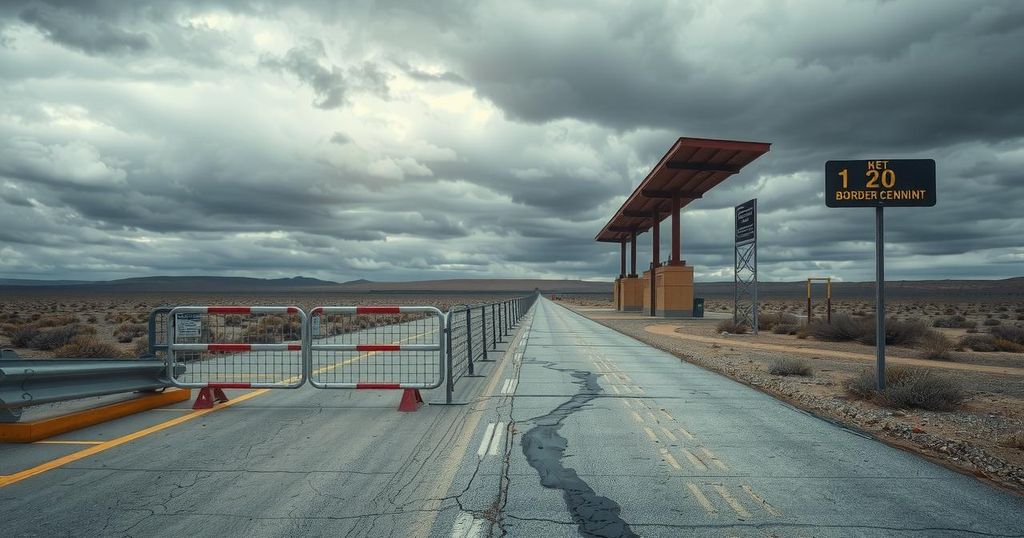Tanzania’s opposition leaders were denied entry into Angola while en route to a democracy conference. Most returned on the same flight, whereas others were compelled to stay overnight. The incident raises broader concerns regarding political freedoms and regional solidarity among opposition movements in Africa.
Leaders of Tanzania’s opposition party, ACT-Wazalendo, have recounted their troubling experience at Luanda International Airport, where they were denied entry by Angolan authorities. Among those affected was party leader Dorothy Semu, who described the situation as an effective ‘deportation’ back to Tanzania on the same Ethiopian Airlines flight that had brought them to Angola, taking place just two and a half hours after their arrival.
While many members returned to Tanzania, notable figures such as Zanzibar’s First Vice President Othman Masoud Othman and Chadema Chairman Tundu Lissu were compelled to stay overnight in Luanda. Angolan officials are currently working to arrange their return to Tanzania amidst ongoing political tensions. The group aimed to attend the Platform for African Democracy (PAD) conference in Benguela, located 421 kilometers from the airport.
The list of individuals denied entry also included notable political figures like Mozambican politician Venâncio Mondlane and former Botswana President Ian Khama, among others from various nations. A letter addressed to Angola’s Director of Migration and Foreign Services specifically named individuals facing entry refusals, yet Tanzanian officials were excluded from this list.
In a statement to The Citizen, Mr. Othman condemned the incident, appealing to both African leaders and the global community to uphold the ideals of unity and brotherhood espoused by the founding leaders of Africa. He expressed disappointment over the treatment his delegation received but maintained goodwill towards the Angolan people, reaffirming Tanzania’s historic ties with the nation.
Mr. Othman indicated his decision to withdraw from the Africa Democracy Forum and return to Tanzania, deeming it necessary to reflect on the implications of this denial on African diplomacy and the broader struggle for democratic principles.
In her interview, Ms. Semu highlighted the strategic motives behind the Angolan government’s actions, asserting that the denial aimed to thwart the PAD conference which could strengthen opposition movements in Africa. She noted that the growing influence of Angola’s opposition party, Unita, particularly after their significant electoral gains, has alarmed the current government.
Ms. Semu criticized the Angolan government for not taking pride in hosting such a vital dialogue among distinguished leaders and stressed that they should have facilitated discussions on enhancing democracy rather than hindering them. She mentioned that airport officials did not provide clear explanations for the entry denial, implying adherence to directives from higher authorities.
Despite the challenges faced, Ms. Semu emphasized the need for opposition parties across Africa to unite in their pursuit of political reform for the benefit of all citizens. She expressed renewed determination to continue their democratic efforts, spurred by the incident, while also noting the involvement of Tanzania’s diplomatic corps in the complications faced during the trip.
According to Lt. Gen. Mathew Mkingule, Tanzania’s High Commissioner to Zambia, some opposition leaders, who had initially been denied entry, were eventually allowed into Angola and accommodated in five-star hotels by the government. He confirmed arrangements for their return home as soon as possible, alluding to the perplexity surrounding the original incident.
The denial of entry to Tanzania’s opposition leaders in Angola raises critical concerns regarding the openness of political discourse on the African continent. Despite the challenges faced by the delegation, their commitment to promoting democracy remains steadfast. The incident underscores the urgent need for a collaborative approach among opposition parties across Africa to advocate for fundamental political reforms. Additionally, continued support from the global community is essential in overcoming barriers to democracy.
Original Source: www.thecitizen.co.tz




